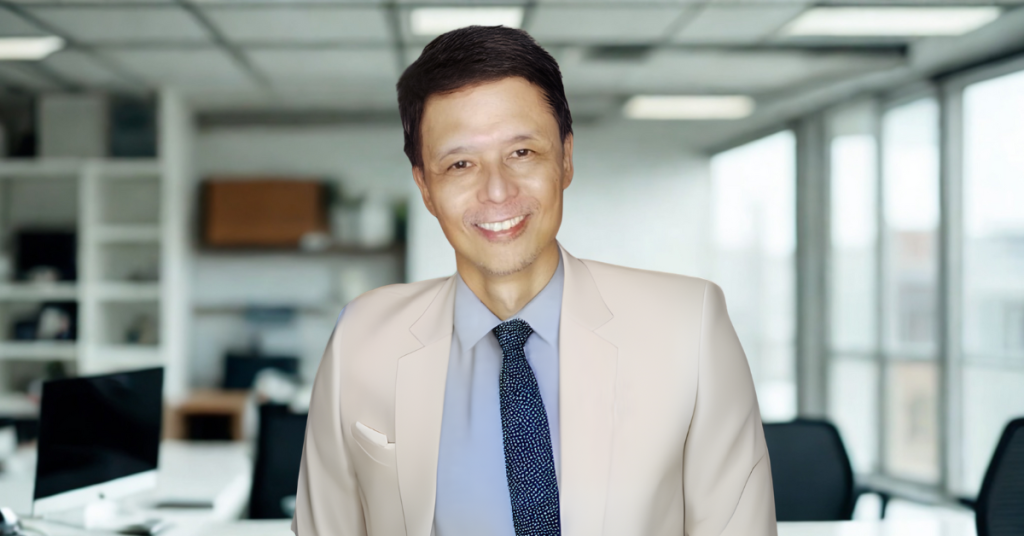Some management consultants spend their whole careers climbing a straight ladder through the same industry. Alfred Quinsay took a different route—one that zigzagged across sales, finance, education, and corporate leadership before landing in consulting.
That unconventional path, he says, is exactly what gives him an edge.
A Career Built Across Industries
Alfred started in auditing and accounting, later moving into sales before returning to finance as a financial analyst and then finance manager. He even served as a department head at an educational institution. Each role, though different, sharpened a new perspective—whether it was learning how deals get closed on the sales floor, understanding capital-intensive mining operations, or seeing the fast-paced efficiency required in BPOs.
“I didn’t have a straight line to consulting,” he explains. “But the variety gave me a broader lens. I could see how different industries work, and that helped me recognize that every business problem is unique—and needs a tailored solution.”
That realization paved the way for his first formal role as a business consultant at a nationwide mutual benefit insurance company. There, Alfred found himself using every bit of his eclectic background to solve problems that spanned finance, operations, and strategy.
Skills That Bridge the Gap
Alfred credits three pillars for preparing him for consulting. His early sales experience taught him negotiation—the art of aligning solutions with client needs. Becoming a seasoned Toastmaster gave him the ability to communicate and present complex ideas in ways that win buy-in across all levels of an organization. And his credentials as a CPA and MBA gave him the technical foundation to analyze numbers with precision.
But perhaps his most surprising edge comes from outside the boardroom: his work as a researcher and novelist. “It trained me to think creatively,” he says. “When you combine analytical skills with imagination, you can see possibilities others miss.”
Consulting in an AI-Driven World
Asked about the future of consulting, Alfred points to a dual shift: the rise of technology and the growing value of human skills. AI and data tools, he notes, are automating many of the routine tasks that consultants used to do. But instead of eliminating the profession, this shift elevates what consultants must bring to the table.
“The real value now is in what can’t be automated—critical thinking, storytelling, leadership,” Alfred says. “AI can process data, but only people can ask the right questions, interpret nuances, and move organizations forward.”
In the Philippines, he sees these global shifts reflected in demand for digital transformation, supply chain resilience, and ESG strategy. He believes local consultants who can marry technical expertise with strong interpersonal skills will be in high demand.
A Leadership Style of Balance
Alfred describes his leadership style as “integration”—a balance between empathy and firmness. He listens deeply to understand people, but he’s also unafraid to be direct when tough decisions are needed.
This balance was tested when he worked with a nationwide direct selling company plagued by fraud and millions in lost collections. His recommendation to automate and reform processes initially met resistance. Instead of confronting managers head-on, he let the numbers speak. By tasking accounting staff to produce proper financial statements, he revealed the scale of the losses. The evidence persuaded even the skeptics, and the company eventually adopted a hybrid automated system that stemmed the fraud.
“You don’t fight people,” he says. “You understand their fears, address them, and guide them to see the value of change.”
Why He Pursued the CMC® Credential
After years of experience across multiple sectors, Alfred decided to pursue the Certified Management Consultant (CMC®) designation. For him, it wasn’t about chasing another exam or title—it was about formalizing the credibility of his track record.
“The CMC validated the journey I had taken,” he says. “It’s not about the letters after your name—it’s about showing clients that your methods meet a global professional standard.”
The process required him to document years of achievements and undergo rigorous assessment of his consulting work. Far from a rubber stamp, the designation tested how his skills, ethics, and results stacked up against global benchmarks.
Lessons for Aspiring Consultants
Looking back, Alfred believes successful consultants set themselves apart not by knowing everything, but by knowing people. “Business problems are always human problems,” he says. “You can have the perfect technical solution, but if you don’t understand what motivates people, it won’t work.”
His advice to aspiring consultants: study psychology as much as strategy. Learn how people think, what drives resistance, and how to build trust. Technical expertise may open the door, but influence and empathy will keep it open.
The Road Ahead
Today, Alfred continues to blend technical rigor with human understanding, a mix that allows him to design strategies that not only look good on paper but actually work in practice. For him, the lesson is simple: the most powerful consultant is the one who can move seamlessly between data and dialogue.
“Consulting is not about having the smartest answer,” he reflects. “It’s about helping organizations see clearly, act confidently, and change sustainably.”
![]()



